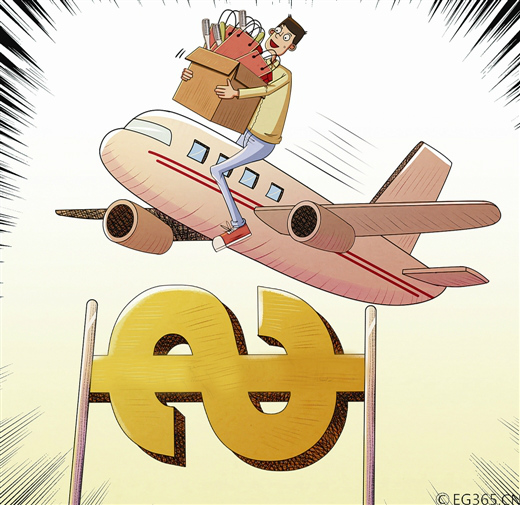
1 Sep, 2016
China’s richest man offers solutions to bring Chinese visitor spending back home
Beijing, 26 August 2016, (People’s Daily Online) – “Chinese overseas spending is growing by double digits. This is a problem that needs our attention. To change the situation, we not only need tariff reductions and good quality domestic products, we also need the government to get involved a high level,” said Wang Jianlin, chairman of the Dalian Wanda Group. Wang made the remarks on Aug. 25 at the 10th Wanda Group Annual Commercial Convention.
Wang, the richest man in China, quoted official statistics in his speech, noting that Chinese outbound travel spending amounted to 2.5 trillion yuan, even without the inclusion of expenses for medical treatments and sports. Wang pointed out three important characteristics of Chinese overseas spending: ongoing two-digit growth; overseas shopping, which includes everything from luxuries to daily articles; and emerging consumer sectors, such as overseas physical examinations and medical treatment.
 |
Wang also disclosed that one district government in Seoul, South Korea actually invited him to invest in plastic surgery hospitals for Chinese women by providing cheap land. However, Wang refused, since such an investment would push even more. However, Wang refused, since such an investment would push even more Chinese to consume abroad.
When discussing the reasons behind overseas spending, Wang surmised that price is the most major determinant, followed by quality and brand.
He insisted that there are issues in the current pricing system, caused partially by tariffs. Chinese consumers are plagued by concerns over the quality of products in China, so they prefer to buy more secure commodities in foreign countries. The popularity of e-commerce without direct contact makes the situation even worse. In addition, some consumers shopping for luxuries enjoy the feeling that they are buying something they cannot access at home.
Wang proposed three measures to reduce overseas spending.
First, professional studies on overseas spending are an urgent priority, such as surveys on market volume, targeted consumers and the impacts on China.
Second, the government needs to regulate the market from a high level. For instance, Wang believes that companies intentionally drive up the price of luxury goods in China.
Third, Wang hopes to see a media campaign for Chinese products, and for counterfeit and shoddy products to be minimised through stricter quality standards.



Liked this article? Share it!